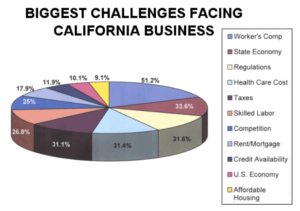Critical Decisions When Launching a Startup

There are countless aspects to launching a startup company. To do it successfully a founder has to make many critical decisions and be right on most of them. Many entrepreneurs have a great idea or product with great plans to make it successful. However, they don’t make the right business decisions, which leads to their startup either failing or never even getting off the ground. When you are ready to launch a startup you have to make sure that you have the right people in place who can help you succeed.
Put the Right People in the Right Positions
I recently spent some time with Montgomery (Monty) Kersten, who is an angel investor and Independent Board member of several startups. We discussed many different key aspects of startup companies and Monty shared with me some of his advice for startups that he’s gained over the years as he’s participated in the successful launch of many startups in Silicon Valley and elsewhere, “Gather around you people who have done it before and put them on the advisory board”. Instead of making them full-time employees. “Listen to their experience and wisdom because many times your early investors will be advisory board members who can help you, guide you and be supportive of you when things go wrong.”
Founder Must Be the Driving Force
Monty reiterated the importance of hiring the right people and building the right advisory board: “Never let down the bar in hiring. Only hire world class people who are willing to work as hard as you.” He added to compensate them fairly. Monty also noted how important it is for a founder to be the one who drives the company forward with a vision and a concrete achievable plan.
Building Your Board of Directors
I asked him how he recommends going about building your board of directors and how to stay in control of your company. He said the reason he is often asked to become an independent board member is because he was a successful CEO and because he serves as an independent board member and not as a representative of a venture capital firm. That’s because the founder typically wants operations advice that is for the benefit of the company.
Consider Your Best Long-Term Interests
On the other hand, venture capital firms are most interested in their own investment as board members, which is how some founders lose control of their companies. “As you build your board, you will find that the dirty secret of Silicon Valley is two out of three founders are replaced by their board of directors over the lifecycle of the company.” So in order to stay in control of your company, it’s important to build your advisory board with several independent board members instead of mostly venture capital firms.
To view the full interview with Monty please click here.
How to Successfully Sell Your Company
How to Successfully Sell Your Company Tips for Privately-Held Business Owners By Jason Pfannenstiel Be clear about your motivation for selling. Reason for the sale is among the first questions buyers will ask. Your personal and professional reasons should be more than simply wanting to cash out for a certain magical dollar value. Before you…
15 Ways to Improve Your Cash Flow Now
15 Ways to Improve Your Cash Flow Now By Howard Fletcher Cash management theory and techniques are well understood and practiced by treasury managers in large corporations. They use sophisticated models and cash management tools that allow them to predict and manage cash. Many of these are beyond the reach or need of small companies.…
Survey: Biggest Challenges Facing California Businesses
Survey: Biggest Challenges Facing California Businesses A recent survey was conducted to determine what business owners in California thought the biggest challenges facing their businesses were. Out of 1500 questionnaires, these are the percentage of respondents who checked off a box next to each challenge. (Respondents were allowed to select more than one box, so…
5 Strategies to Successful Cash Flow Management
5 Strategies to Successful Cash Flow Management By John Reddish How can you predict, avoid and/or, minimize the impact of a cash emergency? Managing cash flow is every manager’s challenge, every day, every year. Those managers who keep a close eye on their daily activity and emerging industry trends can help reduce their company’s exposure…


